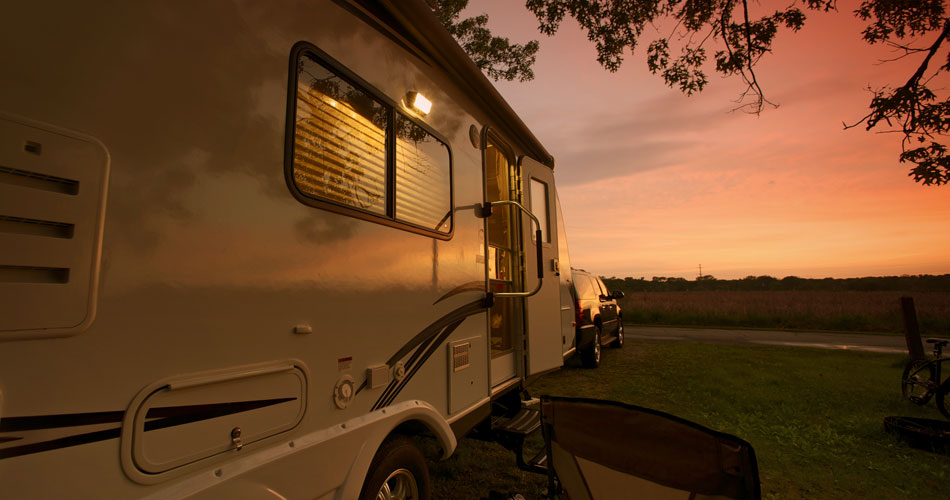Buying an RV—whether brand new or used—is a major investment. It’s not just a vehicle; it’s a home on wheels, with complex systems that must function safely and reliably on the road. While the excitement of exploring national parks or heading down the California coast can be tempting, rushing into a purchase without a thorough inspection can lead to costly and frustrating surprises. A certified RV inspection is the most practical step a buyer can take to protect themselves before committing to an RV purchase. It ensures the rig is roadworthy, all systems function as intended, and no hidden damage has been overlooked.
RVs Are Complex Machines
Unlike standard vehicles, RVs combine mechanical, electrical, plumbing, propane, and structural components into a single unit. Many have slide-outs, roof-mounted systems, water heaters, generators, battery banks, and multiple appliances—all of which need to be inspected for safety and performance. Even minor issues with seals, wiring, or water lines can lead to bigger problems if not identified early.
Used RVs, in particular, can suffer from deferred maintenance or undisclosed wear. Water intrusion is one of the most common (and costly) problems. A small roof leak left unchecked can result in mold, rot, or structural damage behind walls or under flooring. A professional inspection can detect these hidden issues before they become your responsibility.
Why Certification Matters
Certified inspectors—particularly those trained by organizations like the NRVIA (National RV Inspectors Association)—follow detailed, standardized procedures. These inspections are more than quick walkthroughs or surface-level checks. They involve diagnostic tools, system-specific testing, and a thorough review of the entire RV.
Certification also means that the inspector adheres to a recognized code of ethics, has undergone formal training, and uses proven checklists that meet national industry standards. This provides consistency and confidence, especially when comparing multiple RVs or negotiating with a seller.
Peace of Mind for Both New and Used RVs
While it may seem unnecessary to inspect a brand-new RV, manufacturing issues and transport damage are not uncommon. Factory defects, loose components, or rushed assembly can all result in problems that go unnoticed until you’re far from the dealership.
Inspections are even more critical for used RVs. Sellers may not be aware of all the problems themselves, and in private sales, there are rarely warranties. A certified RV inspection report gives buyers a clear picture of the RV’s condition and can serve as leverage in negotiating the price or requesting repairs before closing the deal.
Mobile Inspections Add Flexibility
Mobile inspections offer convenience in a state like California—where buyers may be traveling long distances to view units. The inspector comes to the RV’s location, whether on a lot, at a seller’s home, or in storage. This is especially useful for out-of-town buyers or those purchasing through online platforms.
Mobile inspections eliminate the need to transport the RV to a shop and can often be scheduled quickly, helping keep the purchase process on track.
What a Certified RV Inspection Includes
Every inspector may structure their reports slightly differently, but a certified inspection typically covers:
- Exterior and roof condition, including seals and trim
- Slide-outs and awnings
- Tires, undercarriage, and frame condition
- Electrical system (AC/DC, shore power, battery condition, converter/inverter)
- Water systems (fresh, gray, black, and water heater)
- Propane system and leak testing
- Appliances and HVAC
- Generator, solar, or battery systems (if equipped)
- Evidence of leaks, mold, or structural issues
The report usually includes photos and detailed notes, along with recommendations for repairs or follow-up service. Depending on the RV’s size and configuration, the inspection typically takes several hours.
Inspections Protect the Buyer’s Investment
A certified inspection costs are small compared to what it could save. From identifying potential safety concerns to helping prevent expensive repairs, an inspection gives buyers the information they need to make an informed decision. Whether you’re purchasing your first travel trailer or upgrading to a larger motorhome, taking the time to schedule an inspection can help ensure the RV supports your plans—not your problems.
FAQs
- Do I need an inspection if I’m buying from a dealer?
Yes. Dealerships may offer in-house inspections, but a third-party certified inspection offers an unbiased look at the RV’s condition without sales pressure. - How long does a certified RV inspection take?
Most inspections take 3 to 6 hours, depending on the size of the RV and any added systems, such as solar or generators. - Can a certified inspection help with price negotiations?
Absolutely. If the inspection uncovers issues, buyers can use the report to negotiate the purchase price or request that certain repairs be completed before the sale is finalized. - Do inspections include engine or chassis reviews?
Some inspectors will review general condition and fluids for motorhomes, but a full mechanical diagnosis may require a separate certified mechanic. Always ask in advance what the inspection covers.
Chief RV offers RV inspections and services in Southern California. Contact us to schedule an appointment.

